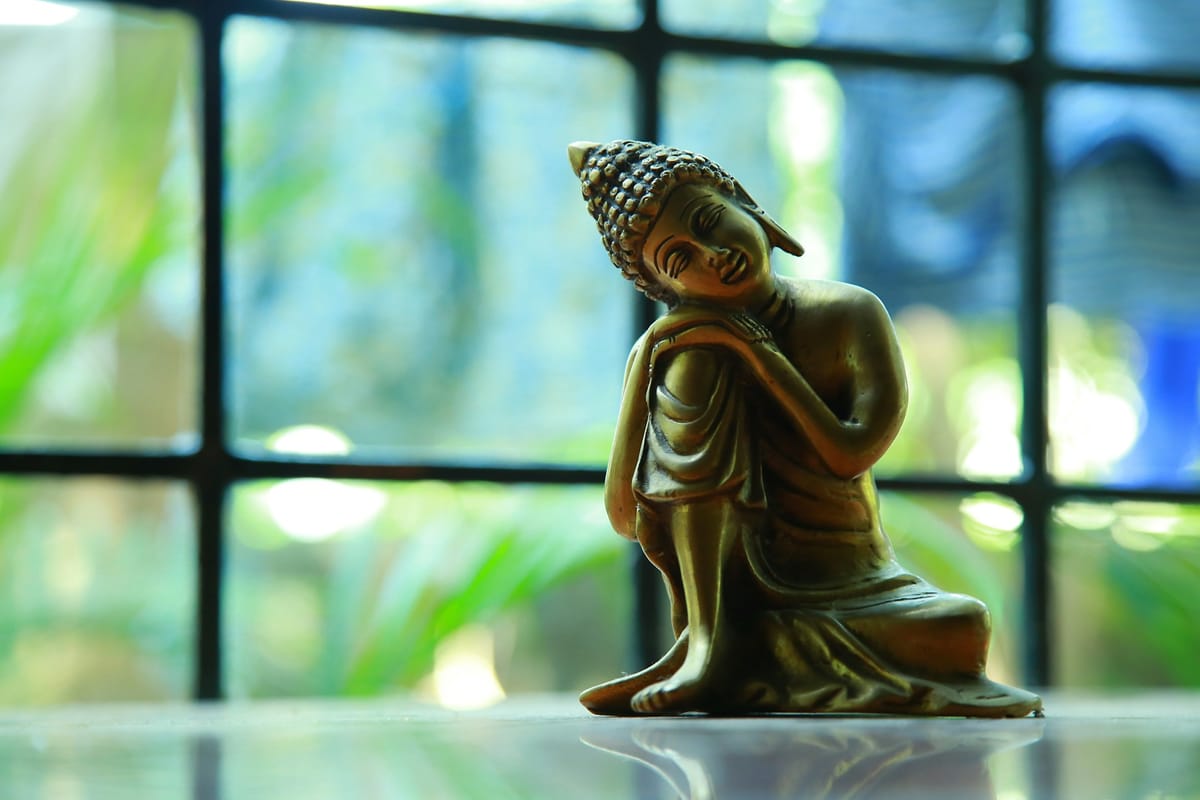only one place where wisdom lives
You know where I'm going with this, don't you? 😉

I was recently reading a book on Internal Family Systems, and it suddenly occurred to me that fundamentally it is quite similar to the RAIN approach for processing and soothing emotions.
For the uninitiated, IFS is a psychotherapy model in which our mind is viewed as comprising different parts — Protectors (Managers and Firefighters) that show up to help the Exiles (the parts of us that are affected by past experiences and trauma). At the very core, though, is the Self, which is inherently wise and calm and courageous and that is the space we seek to operate from more and more as we heal.
RAIN is an approach in which, when we're overcome with strong emotions, we're invited to Recognize and Allow the feelings that arise, Inquire into the true nature and deeper source of these emotions, and Nurture our selves through the process.
And these in turn remind me of discussions on healing our Inner Child, primarily by operating from a space within us that is a Wiser Self, or a Seat of Wisdom, and caring for the wounded child that shows up when we're triggered.
The more I read, the more I find that all these different models of healing and wisdom teaching are fundamentally the same. It's about facing a trigger, pausing so as to not get hijacked by the trigger, and allowing ourselves the space and time to respond with guidance from the inherently wise inner self.
The day I realized this, I understood why wisdom teachers such as Laozi and Jiddu Krishnamurti refused to put their wisdom down on paper.
Firstly, it is impossible to explain wisdom to another person. Much is lost in translation. And the receiver takes in the knowledge through the lens of his/her own past conditioning.
Secondly, the instant a human being has recourse to a book or a podcast or a guru to turn to, they'd quite likely opt for this route rather than doing the only thing that is required, the only thing that matters, the only thing that could possible make a difference: turn inwards.
Even since I began writing these end-of-day field notes, I've become much more attuned to the inner workings of my mind and heart, far more than I had ever managed to when I turned to books or podcasts to soothe my anxious mind.
I now understand why writing is so important to me. I write to gain more clarity on my own thoughts. I write to understand myself better. I write, so I can sit with myself and my thoughts, and begin to understand who I am, how I function, and what my behavioural patterns are.
Because no matter how wise and insightful a book may be, it is still the product of someone else's experiences. Reading or listening to those might give me some comfort, some validation, but only for a few brief moments.
And the act of looking outwards can never guide us to uncovering our inner truths. How can I understand myself when I'm always looking to an external authority to explain myself to me? How could they possibly do that?
We can take this one step further and question whether the various methods of categorizing people — by sun signs or moon signs, by Enneagram type, by Clifton Strengths, by DISC profiles, by personality types — are really valid.
It is comforting, no doubt, to have an external authority take a look at us and say, "You are Type 4" or "You are an ENFJ" or "You are a Scorpio." These labels give us some benchmarks, some sort of acceptable, even if vague, way of categorizing ourselves. It gives us much relief when we can say, "Oh, so this is who I am!"
But why give someone else that authority? That privilege? Especially when they can at most classify us in only some perfunctory, generalized ways.
It is as though we become little children, turning to any subject-matter-expert, hoping they'd be able to give us the validation and recognition, the acknowledgment and identity that we probably didn't quite get earlier on in our lives.
How wonderful it can be when we decide to get to know ourselves, by observing our thoughts and emotions, our triggers and reactions, by using perspectives that we come up with because they align with our values, instead of looking to someone else to tell us who we are?
When we engage with ourselves, we are the student, and we are the master too. We are the devotee who calls out, and we are the God who responds. We are the seeker, and we ourselves are the one we seek.
So, what's stopping you from turning inwards, right here, right now?